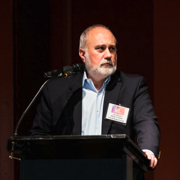Policy
DeSantis marked for millions in 'sprinkle list' money in state budget
Almost $5 million will go toward extra protection and general 'operating support.'

Image by Ralph from Pixabay
(The story below updates this morning's 'First Up' from the First Read newsletter.)
Nearly $5 million in extra money in the state budget proposed for next year is set aside for Gov. Ron DeSantis, according to supplemental funding sheets – or "sprinkle lists" – released Monday morning.
The Senate's supplemental funding list, from money squirreled away before the yearly budgeting process for last-minute awards, shows $1 million for the governor's office for "operating support."
The money is what's known as recurring dollars, meaning it will be in each year's budget from now on. Senate budget chief Doug Broxson, R-Gulf Breeze, later told reporters the money was meant to be used for raises to retain key personnel.
The First Family also will benefit from $3.8 million on the House's list for the Florida Department of Law Enforcement's Protective Operations Section, which provides "critical protection for the governor and first family." DeSantis is expected to announce his intentions on whether to run for the White House after the session ends Friday.
It also protects "the governor’s office, governor’s mansion and grounds," its website says. And "Protective Operations is ... authorized to provide protection and transportation for visiting governors and other dignitaries when requested." That money also is recurring.
A bill before the Legislature this year (SB 1616) would create a public records exemption for travel made by the governor and other state leaders. It also would withhold from the public names of certain guests at the governor’s mansion. The Senate passed the bill and sent it to the House last month.
Other notable sprinkle list items include:
— $8 million combined from both chambers in nonrecurring funds (i.e., only for the upcoming budget year) for the Florida State University Institute for Politics. "The funds shall be used for the implementation of an online accurately depicted statewide history program adhering to all state standards."
— $10 million in nonrecurring funds from the House to New College of Florida for unspecified "operational support."
— $10 million in nonrecurring funds from the Senate to the Department of Agriculture and Consumer Services for "facilities construction/renovation."
(Original post from this morning)
It’s that time of year when the next year’s state budget is finalized and those who don’t get in the general appropriations bill hope to be in what’s officially termed supplemental funding. Lawmakers worked through the weekend to finish the budget for 2023-24; because of a legally mandated 72-hour cooling off period, lawmakers must have copies of the budget by Tuesday to finish the legislative session on time by this Friday.
Soon the House and Senate supplemental funding will announce what have come to be called “sprinkle lists,” so called – as now-independent journalist Jason Garcia once explained in Florida Trend – because they’re “used to sprinkle one last helping of hometown projects into the budget in order to get a deal done.”
The money, usually many millions of dollars, is held back from the general budgeting process by the House speaker and Senate president – currently Republicans Paul Renner and Kathleen Passidomo – and then parceled out at the very end. In recent years, sprinkles have gone to nonprofits for programs, such as for feeding the hungry, and universities for unspecified “operating support.”
Each chamber had previously approved its own version of the budget, with the Senate coming in at $113.7 billion and the House at roughly $113 billion. Whatever the final product, it’s sure to set another state spending record: Even after $3.1 billion in line-item vetoes by Gov. Ron DeSantis, the current year’s budget clocked in at $109.9 billion. The state’s fiscal year starts July 1.
Got tips? Email editor@cityandstatefl.com.
This is First Up, an excerpt from City & State's daily morning newsletter, First Read. To subscribe for free, please visit our newsletters page.
NEXT STORY: Department of Health pursues 'docs vs. Glocks' rule
